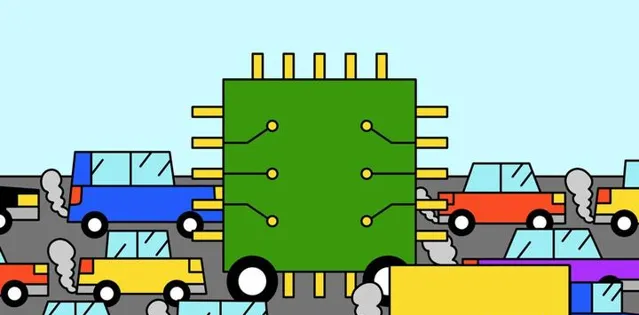文章來源:【經濟學人】Jul 28th 2022 期 Leaders 欄目
The era of big-tech exceptionalism may be over
大型科技例外論的時代可能結束了
Cloudburst

America’s technology giants are facing unfamiliar limits to growth
美國的科技巨頭們正面臨著陌生的增長限制
Jul 27th 2022
In the digital world, the laws of physics can be suspended on a programmer’s whim. Equally, that world’s corporate architects have seemed able to defy economic gravity. Since 2005 the digital share of American gdp has risen by a third, to 10%. America’s tech oligopoly—Meta, Alphabet, Amazon, Microsoft and Apple (maama, if you will)—has outpaced even that breakneck growth. Collectively, maama’s revenues and profits have swelled by nearly 20% a year on average over the past decade, while America eked out nominal annual gdp growth of less than 4%. Covid-19 may have cramped physical lives, but it enriched digital ones—thereby also enriching big tech as never before.
在數位世界中,物理定律可以因程式設計師的突發奇想而被擱置。同樣,這個世界的企業老板似乎能夠無視經濟規律。自2005年以來,數位在美國GDP中所占的份額上升了三分之一,達到10%。美國的科技寡頭——Meta、Alphabet、亞馬遜、微軟和蘋果(縮寫為MAAMA,如果你願意這樣稱呼的話)——甚至已經超過了這一高速增長。總的來說,在過去的十年裏,MAAMA的收入和利潤平均每年增長近20%,而美國竭力維持的名義GDP年增長率卻只有不到4%。Covid-19可能限制了人們的物質生活,但它豐富了數位生活,從而也以前所未有的方式讓大型科技公司富裕。
This year gravity has asserted itself once more. The tech-heavy nasdaq index is down by a quarter since January, half as much again as America’s broader stockmarket. Profitless not-so-big tech has been dragged down by anaemic revenue growth and high interest rates, which make the far-off earnings of firms like Snap look less valuable today. More surprising, despite generating piles of cash in the here and now, the giants are also feeling the tug of reality. On July 26th Alphabet reported its slowest quarterly sales growth since the bleak early months of the pandemic. Its share price rallied, though not enough to offset recent falls and only because expectations were even worse. A day later Meta said its sales fell year on year, for the first time ever.
今年,重力再次顯示出其威力。以科技股為主的納斯達克指數自一月份以來下跌了四分之一,跌幅是美國整體股市跌幅的一半。收入增長乏力和利率高企拖累了利潤不高的不算大的科技公司,這讓Snap等公司遙遠的收益在今天看來不那麽值錢。更令人驚訝的是,盡管這些巨頭在此時此地獲得了大量現金,但它們也感受到了現實的拉力。7月26日,Alphabet公布了自疫情前幾個月慘淡銷售增長以來最慢的季度銷售增長。它的股價反彈,雖然不足以抵消最近的下跌,而且這只是因為市場預期更糟。一天後,Meta表示其銷量首次同比下降。
America’s technology titans are suddenly having to contend with forces that have long plagued old-economy ceos: gummed-up supply chains, protectionism, worker shortages and competition. For maama, these constraints are something of a novelty. Its bosses had better get used to them.
突然之間,美國的科技巨頭們不得不與長期困擾著傳統經濟的執行長們的各種力量作鬥爭:阻塞的供應鏈、貿易保護主義、工人短缺以及競爭。對於MAAMA來說,這些限制有些新奇。這些老板們最好習慣它們。
One limit is geography, often forgotten in a world of seamless global supply chains and largely borderless cyberspace. In so far as the tech giants peddle physical bits and bobs rather than digital bytes, they are sharing in the pain of supply disruptions. In April, Apple (which like Amazon was due to report its results after we went to press) warned that its revenues would be $4bn-8bn lower than expected in the second quarter, chiefly because of supply-chain snags in [...], where factories are locked down with unnerving severity every time a case of covid turns up. Ingenious inventory-management software has not spared Amazon—which, like conventional retailers such as Walmart, misjudged what shoppers wanted and when—from extra costs.
地理因素食一個限制,在一個全球供應鏈無縫銜接、網路空間基本無界的世界裏,地理因素常常被遺忘。只要科技巨頭們兜售零零碎碎的實物,而不是數位字節,他們就會承受供應中斷的痛苦。今年4月,蘋果(與亞馬遜一樣,在我們付印後也將公布業績)警告稱,其第二季度營收將比預期低40億至80億美元,主要原因是供應鏈受阻。每當出現新冠肺炎病例,工廠就會以令人不安的嚴重程度封鎖。精妙的庫存管理軟體並沒有讓亞馬遜免於額外的成本,就像沃爾瑪這樣的傳統零售商一樣,它錯誤地判斷了顧客想要什麽以及何時需要。
Barriers are being put up on the internet, too, as places from the European Union to India become more protective of their citizens’ data and of their own digital darlings. That is a worry for Alphabet, Meta and Microsoft, which, outside firewalled [...] at least, face few barriers to selling their digital services.
隨著歐盟和印度等地對本國公民的數據和自己的數位寵兒采取了更加嚴格的保護措施,互聯網上也設定了障礙。這是Alphabet、Meta和微軟的擔憂,它們至少在設定了防火墻的[...]之外,在銷售數位服務方面幾乎沒有障礙。
Another limit has to do with talent. Tech firms are not used to scrabbling around for the best programmers. However, having dislodged banks and consultancies as graduates’ dream employers, big tech is finding it hard to recruit. One reason is the sheer size of maama’s collective workforce , which has grown nearly seven-fold in the past ten years, to 2.2m. The bigger the payroll the harder it is to replenish, let alone expand. Big tech also faces stiffer competition from other industries, all of which these days manifest a degree of techiness minus the controversies that have sullied big tech’s reputation.
另一個限制與人才相關。科技公司不習慣四處尋找最好的程式設計師。然而,科技公司在取代了銀行和咨詢公司,成為畢業生的理想雇主之後,大型科技公司發現很難招到人。其中一個原因是MAAMA的集體勞動力規模,在過去十年中增長了近7倍,達到220萬人。員工薪資支出越多,就越難以補充,更不用說擴大規模了。大型科技公司還面臨著來自其他行業的激烈競爭,這些行業如今都表現出一定程度的技術性,並且沒有出現損害大型科技公司聲譽的爭議。
The last limit is maama’s markets. As businesses such as e-commerce revert to pre-covid growth rates, the pandemic looks less like the start of an era of endless digitisation, and more like a one-off step-change. As they become commonplace, tech offerings are behaving like other staples. As Alphabet and Meta show, digital ads, once thought immune to the business cycle, may be turning as procyclical as the offline sort.
最後一個限制是MAAMA的市場。隨著電商等企業恢復到新冠肺炎之前的增長速度,這場大流行看起來不太像無休止的數位化時代的開始,而更像是免洗的巨變。隨著科技產品變得司空見慣,它們的表現與其它主要產品沒什麽兩樣。正如Alphabet和Meta所顯示的那樣,曾經被認為不受商業周期影響的數位廣告,可能會像線下廣告那樣轉向順周期。
Be it online ads or shopping, the cloud or smartphones, tech markets are more mature—and mature markets grow more slowly, especially when regulators are no longer ignoring them. In many areas incumbents’ fat margins are being competed down. Amazon, for example, is investing heavily in its advertising business, Alphabet’s forte; Alphabet, meanwhile, is spending billions to get a foothold in the cloud, which is Amazon’s.
無論是線上廣告還是購物,雲端運算還是智慧型手機,科技市場都更加成熟,而成熟的市場增長更緩慢,尤其是當監管機構不再忽視它們的時候。在許多領域,現有企業的豐厚利潤正在被競爭壓低。例如,亞馬遜正在大力投資其廣告業務(Alphabet的強項);與此同時,Alphabet正在花費數十億美元在屬於亞馬遜強項的雲端運算領域站穩腳跟。
MAAMA mia, can you grow again?
The giants of tech may yet rediscover their reality-distorting magic. Amazon’s $3.9bn purchase this month of One Medical, an American health-care provider, is only the latest maama effort to conquer one of the last remaining under-digitised markets big enough to move the needle for a trillion-dollar firm. They may once again conjure up an all-new market, as Apple did with the iPhone’s app economy and hopes to repeat with augmented reality. Until that happens, though, the era of big-tech exceptionalism is probably over. ■
科技巨頭們可能會重新發現他們扭曲現實的魔力。亞馬遜本月斥資39億美元收購了美國醫療服務提供商One Medical,這只是MAAMA的最新努力,其目的是征服僅存的幾個數位化程度不高的市場之一,這個市場的規模足以影響一家市值高達萬億美元的公司。他們可能會再次創造出一個全新的市場,就像蘋果在iPhone應用程式經濟領域所做的那樣,並希望在增強現實技術領域重復這一做法。然而,在這種情況發生之前,大型科技例外論的時代可能已經結束。■











